
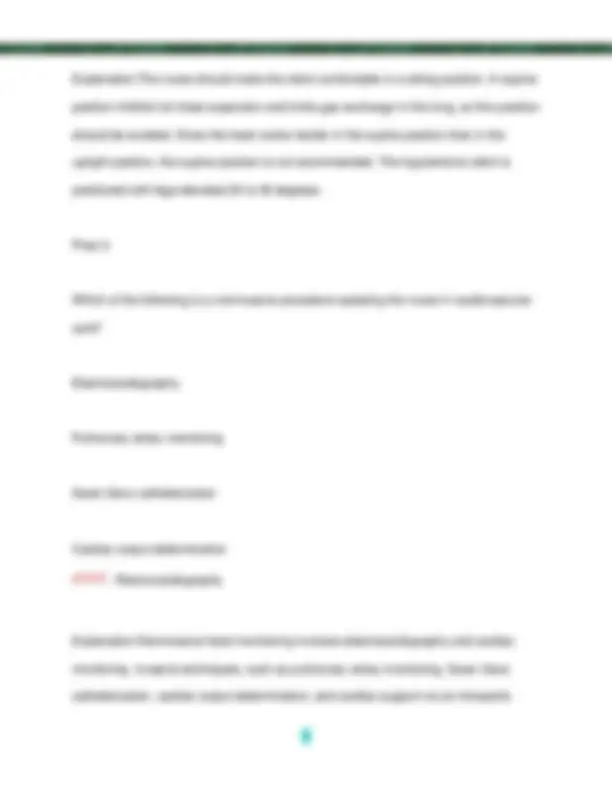
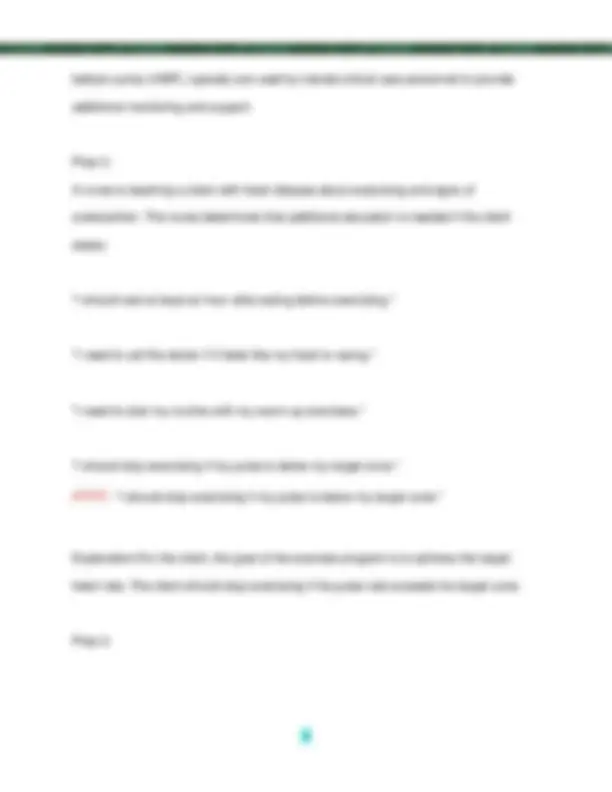
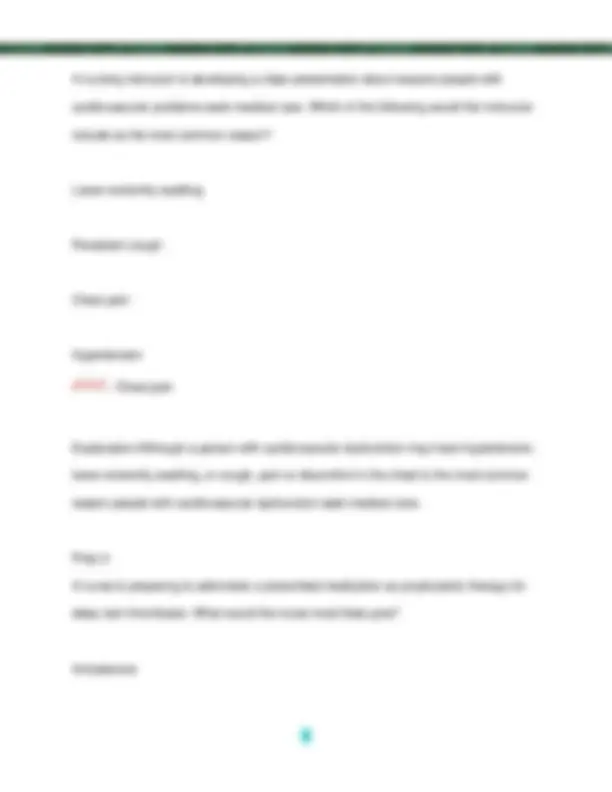
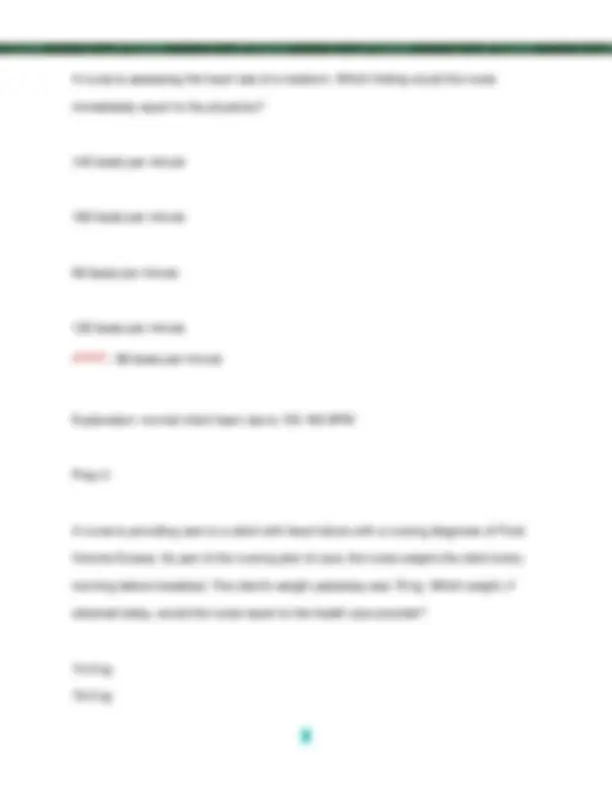
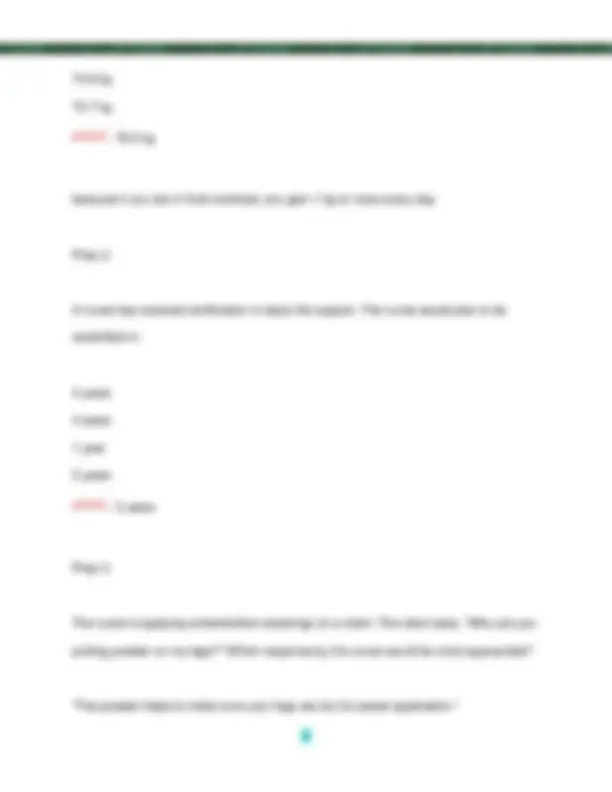
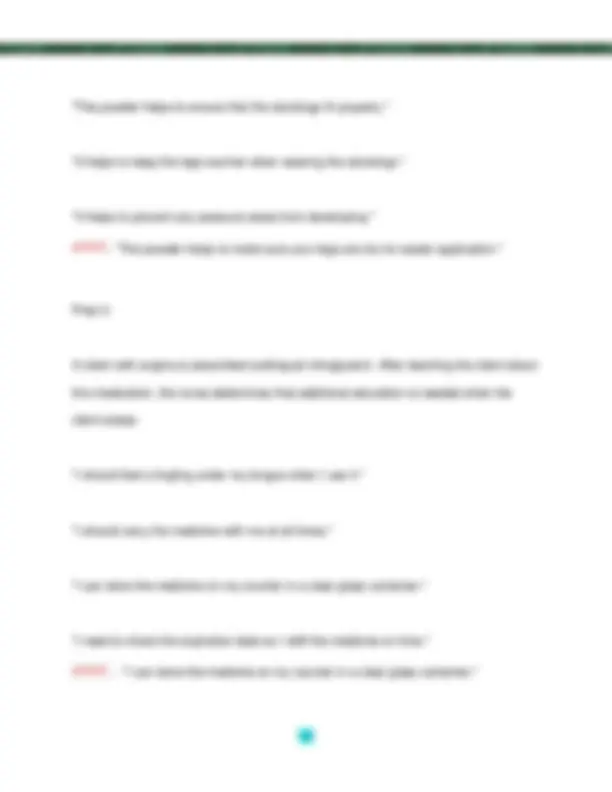
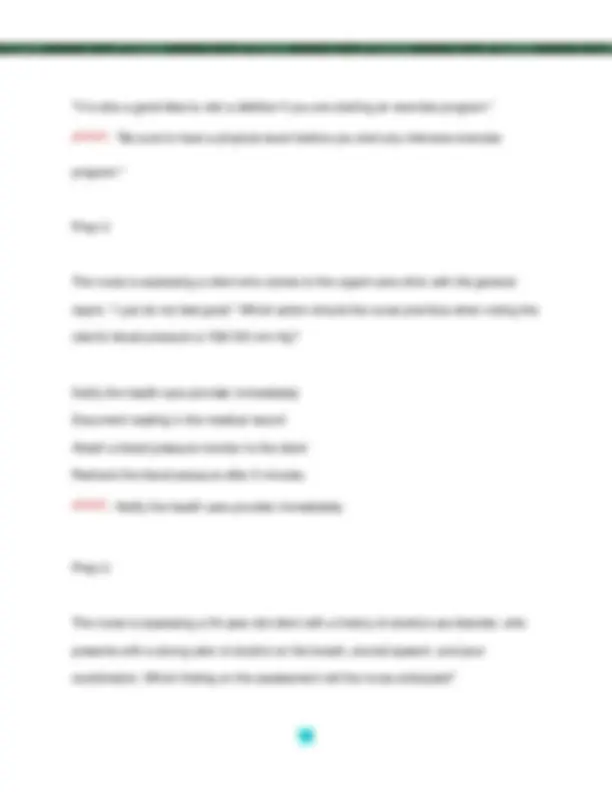
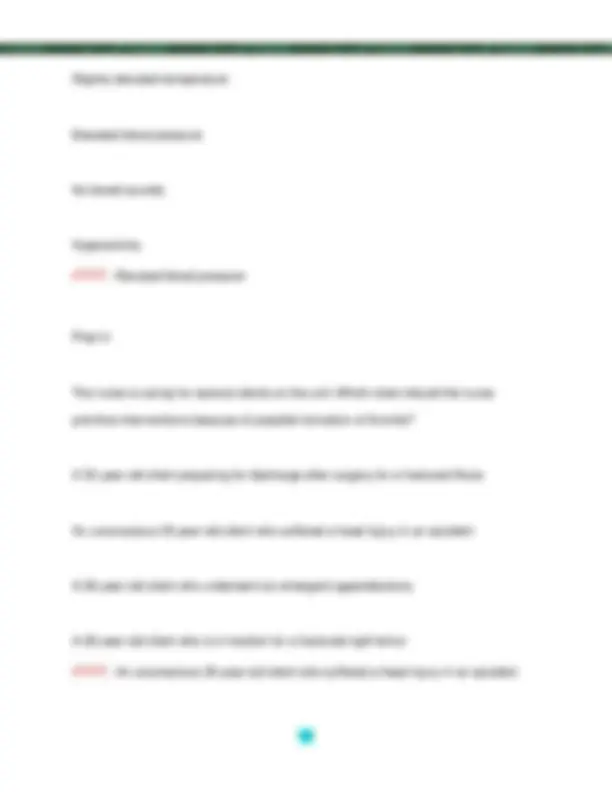
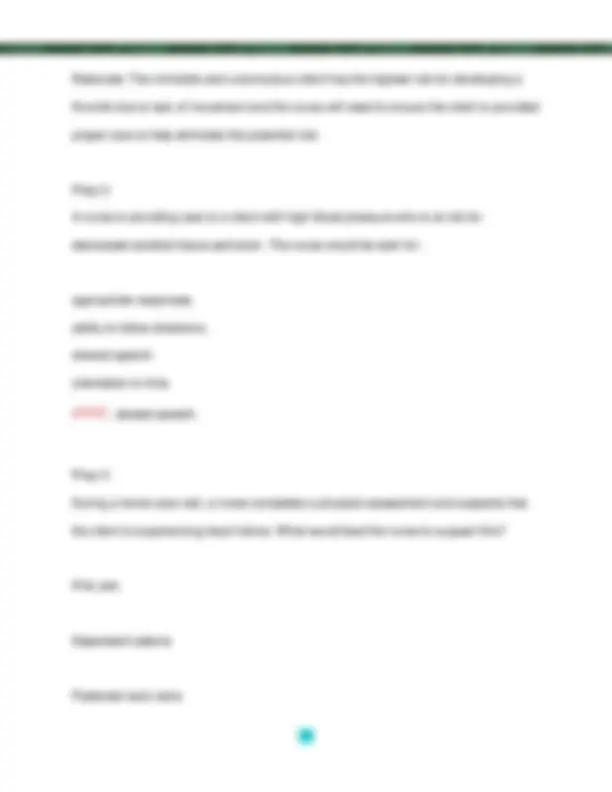
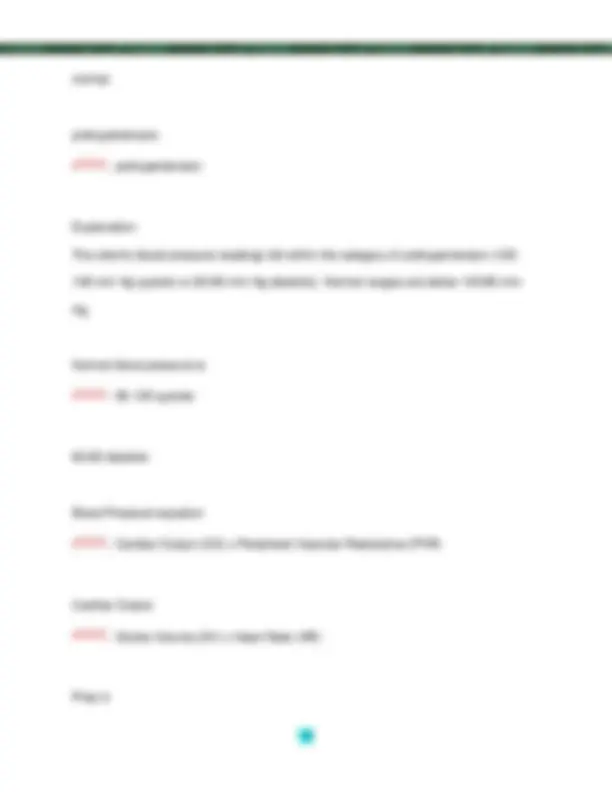
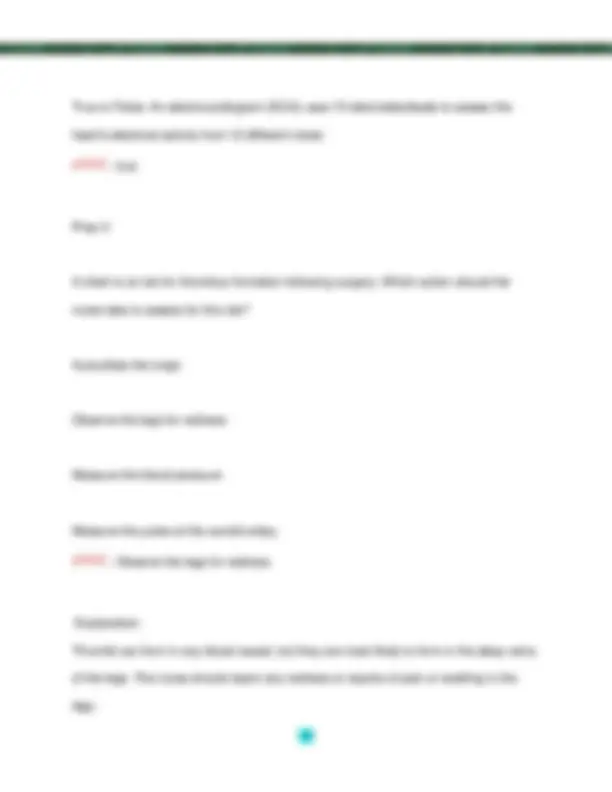
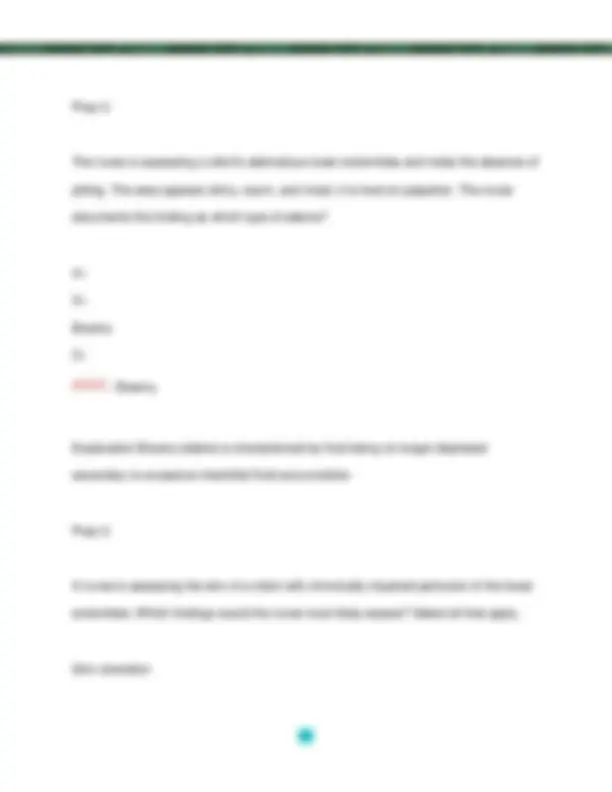
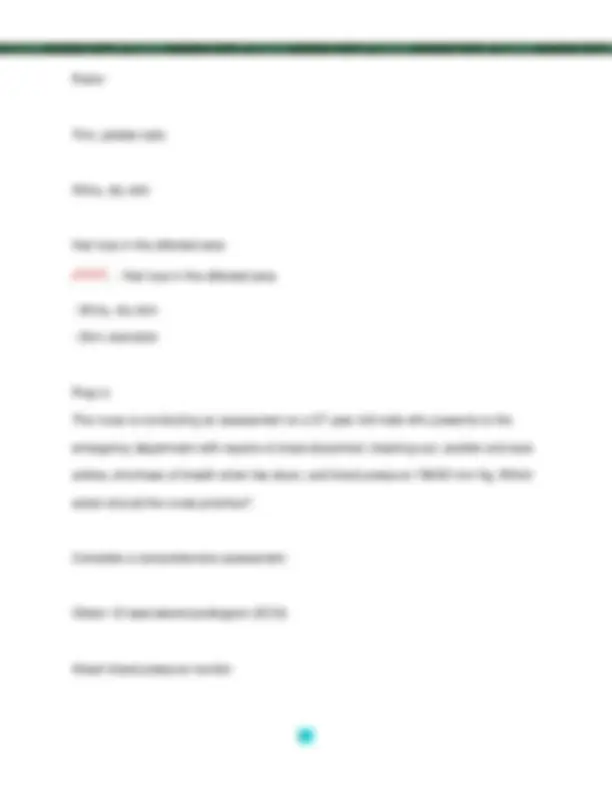
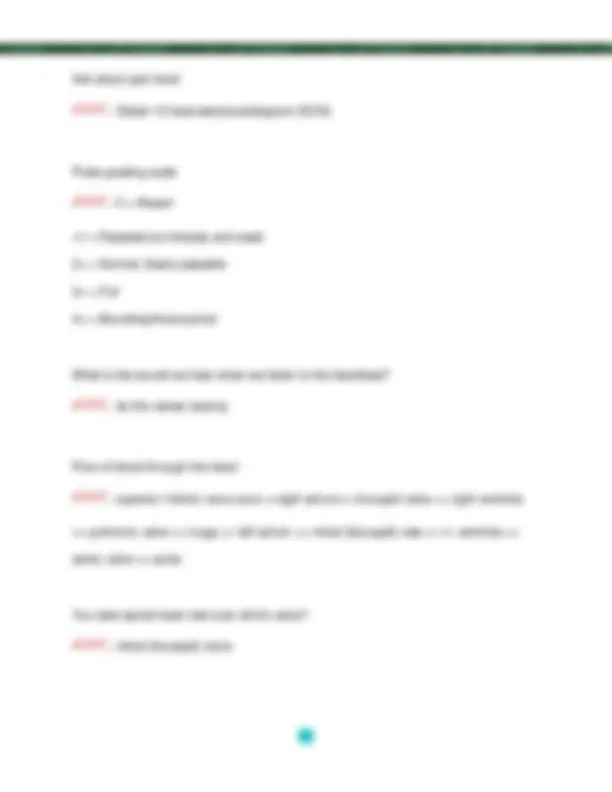
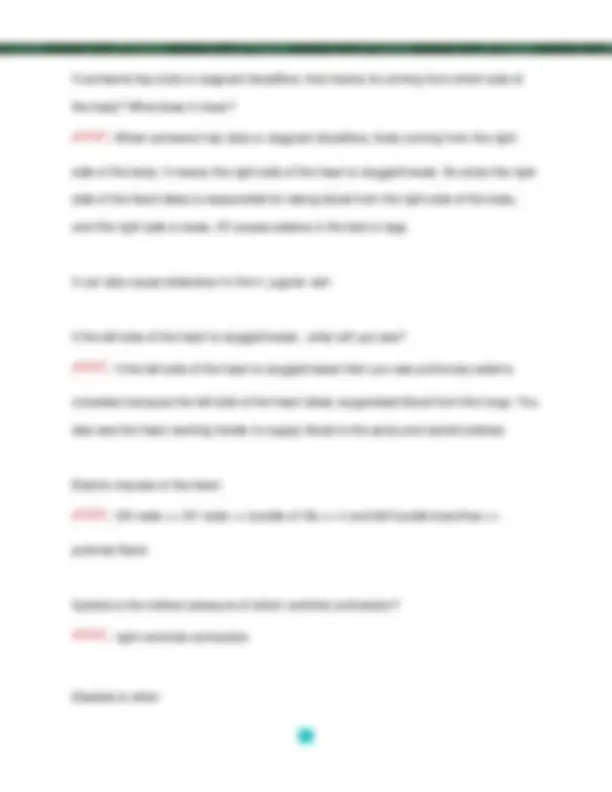
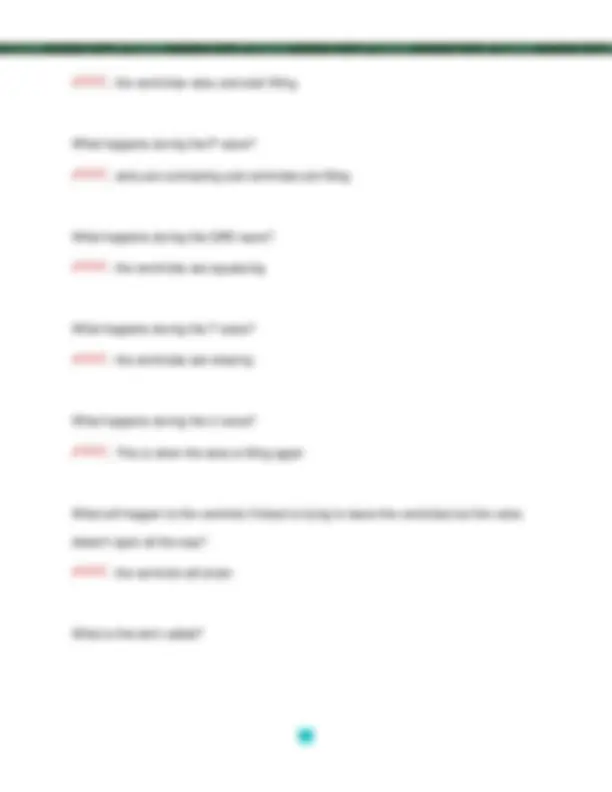
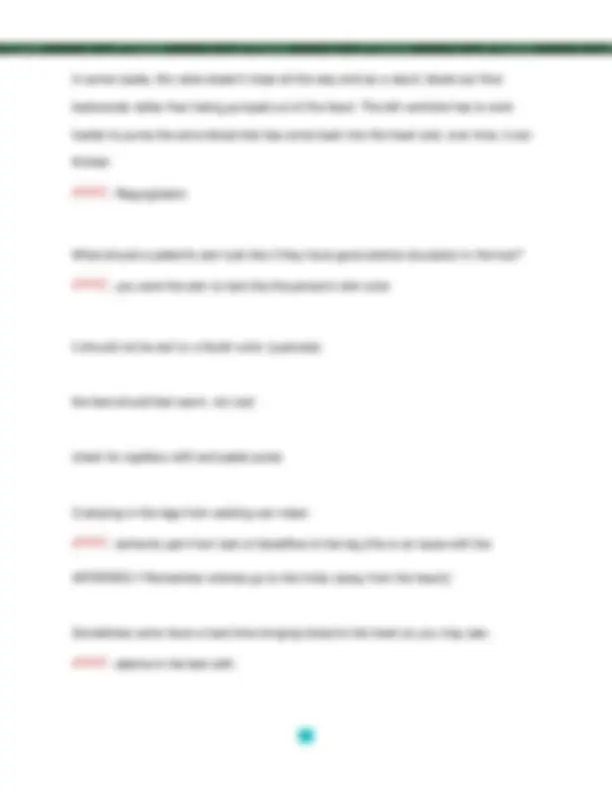
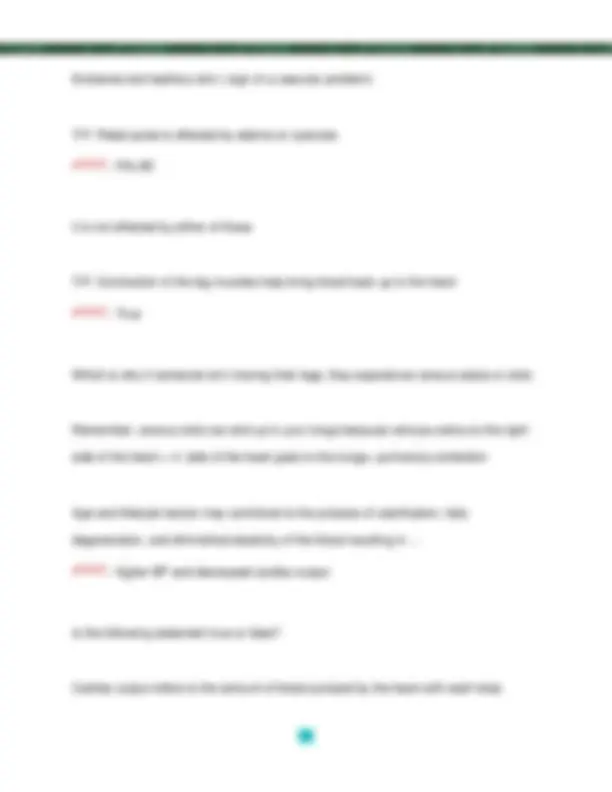
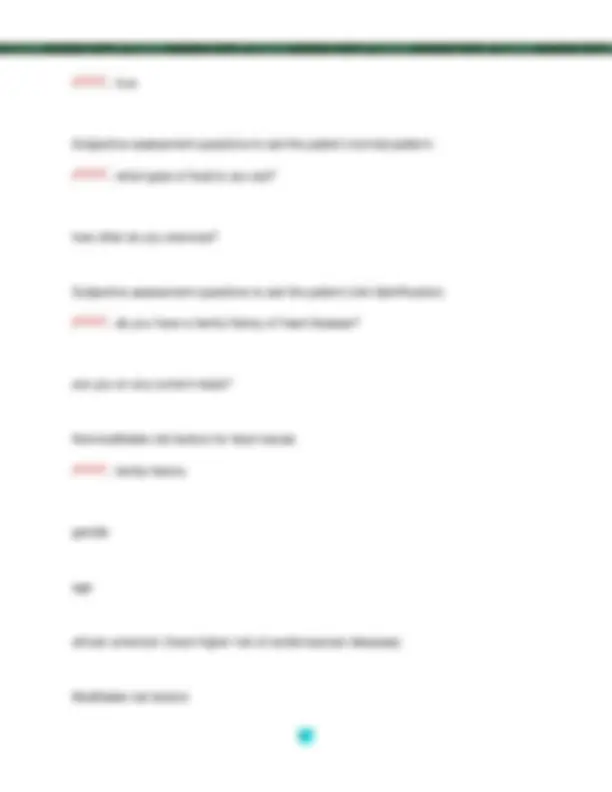
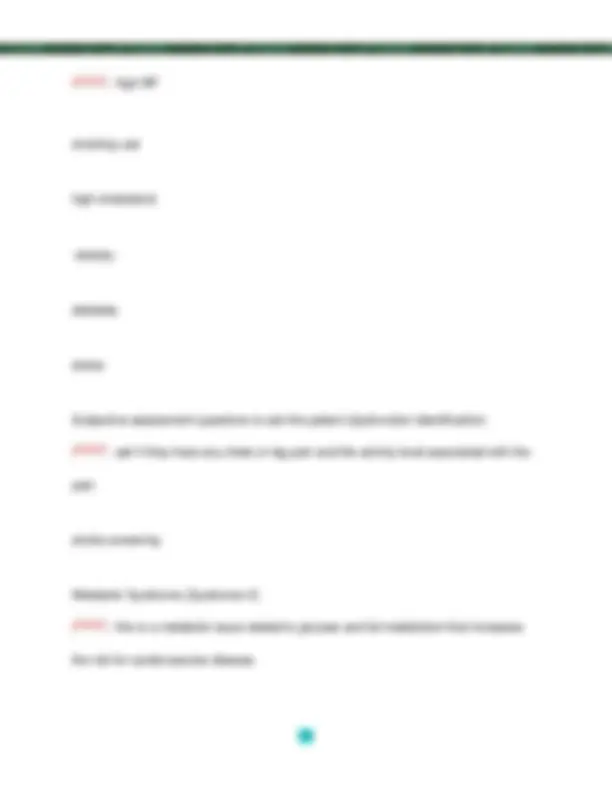
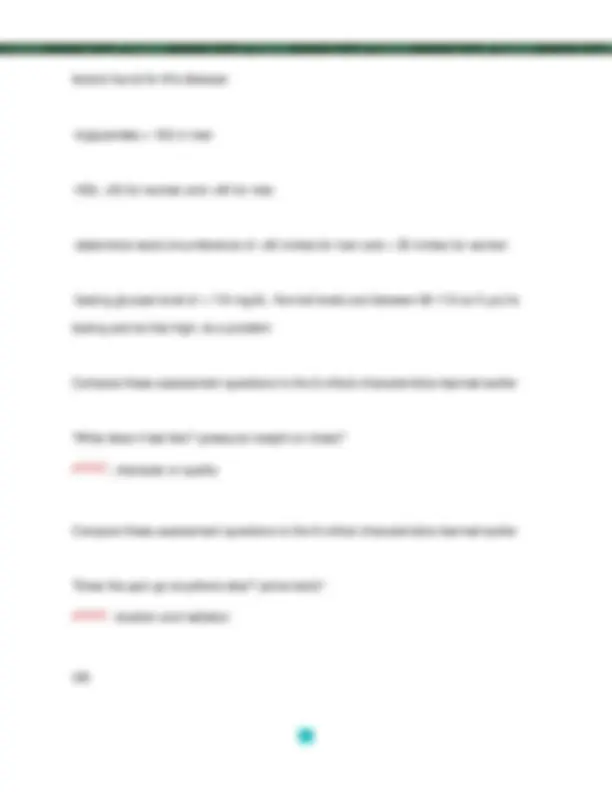
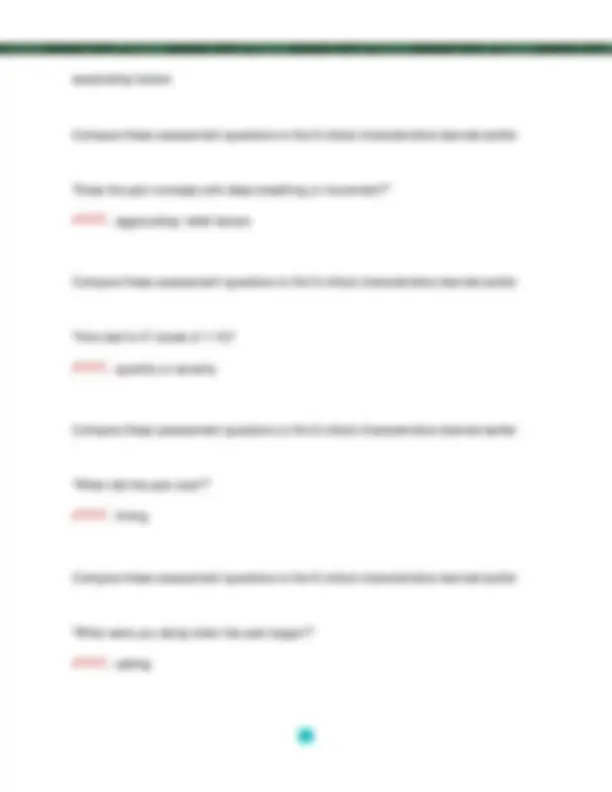
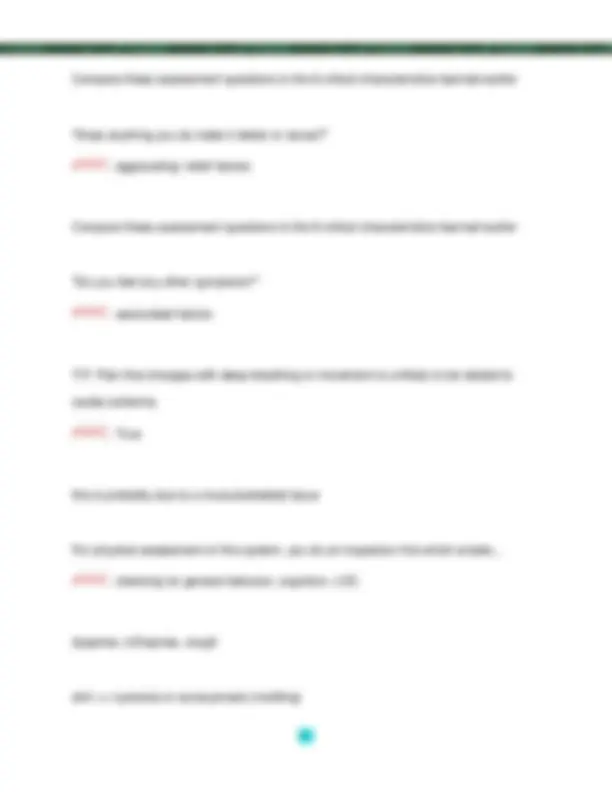
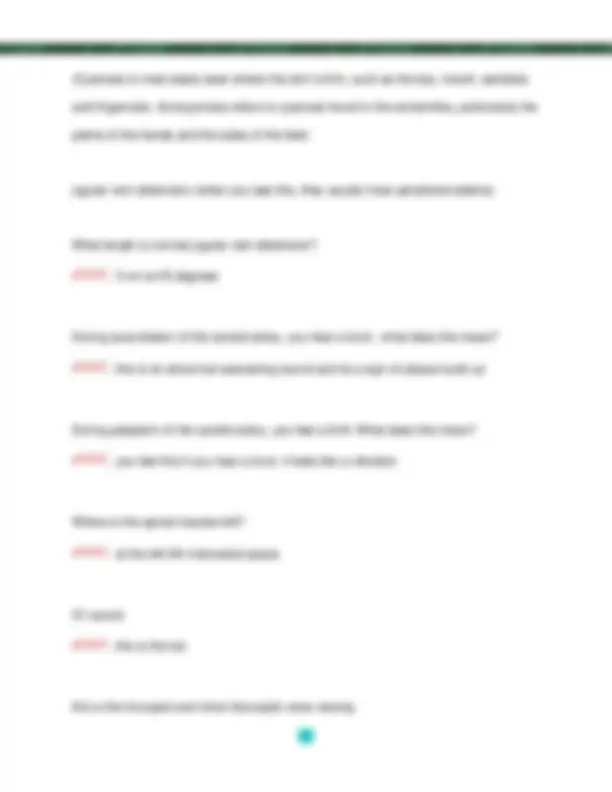
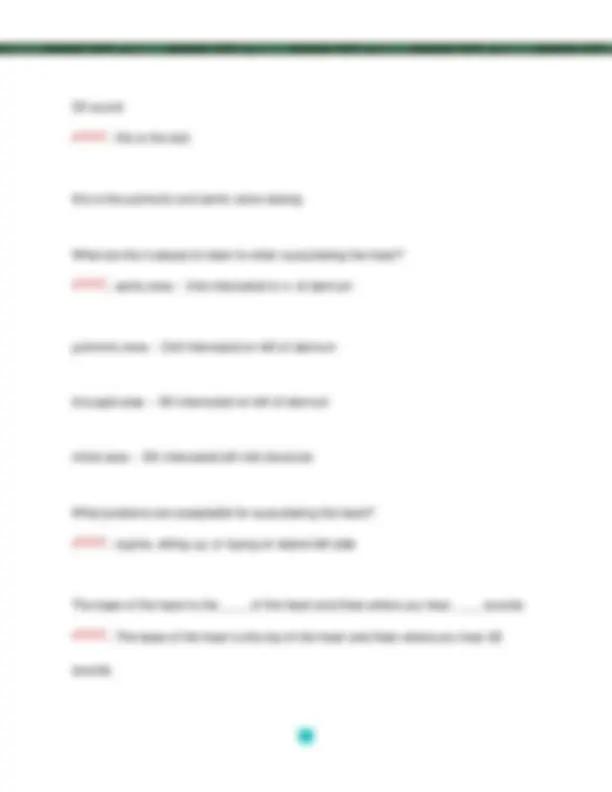
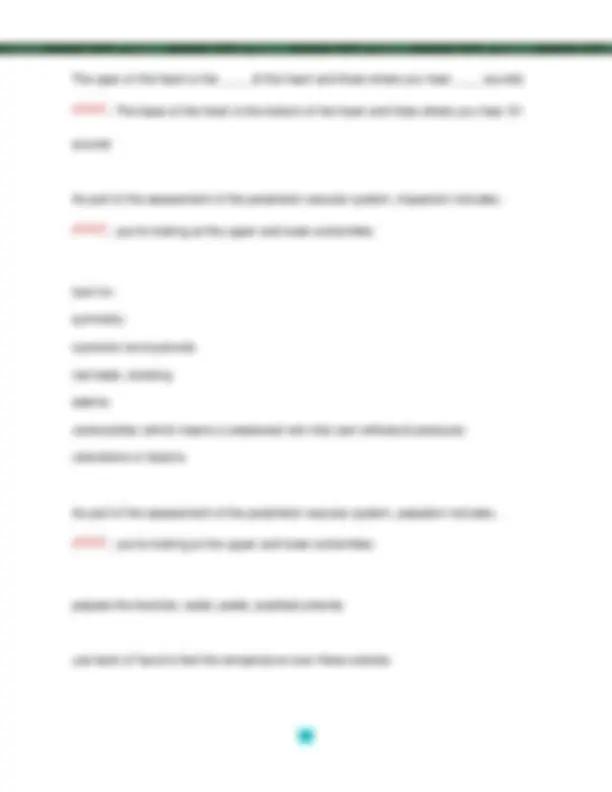
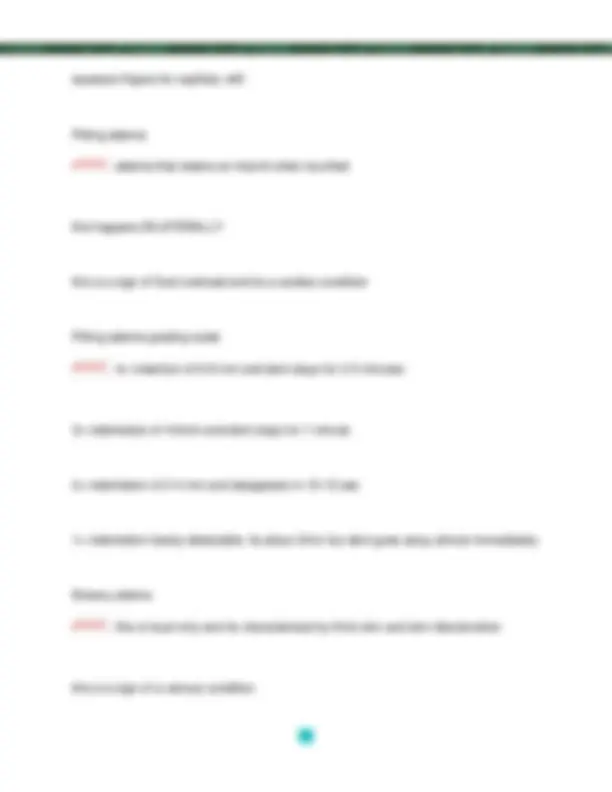
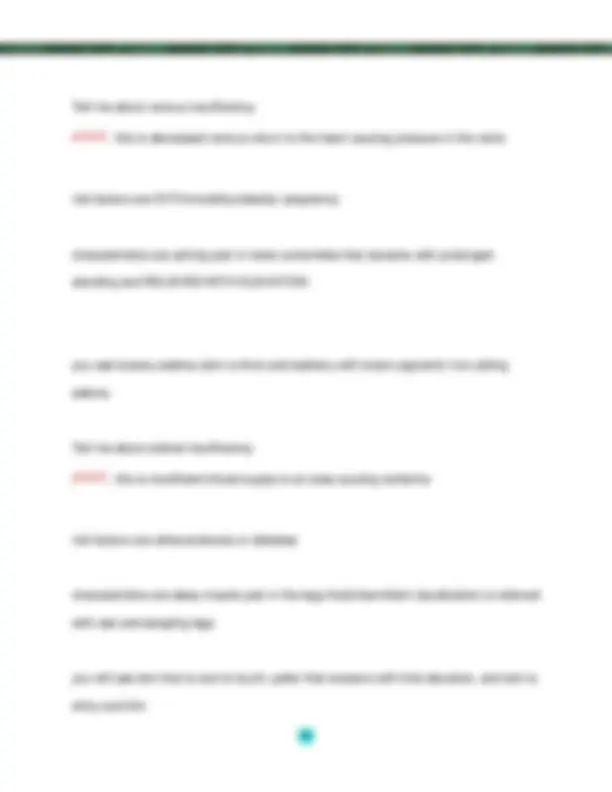
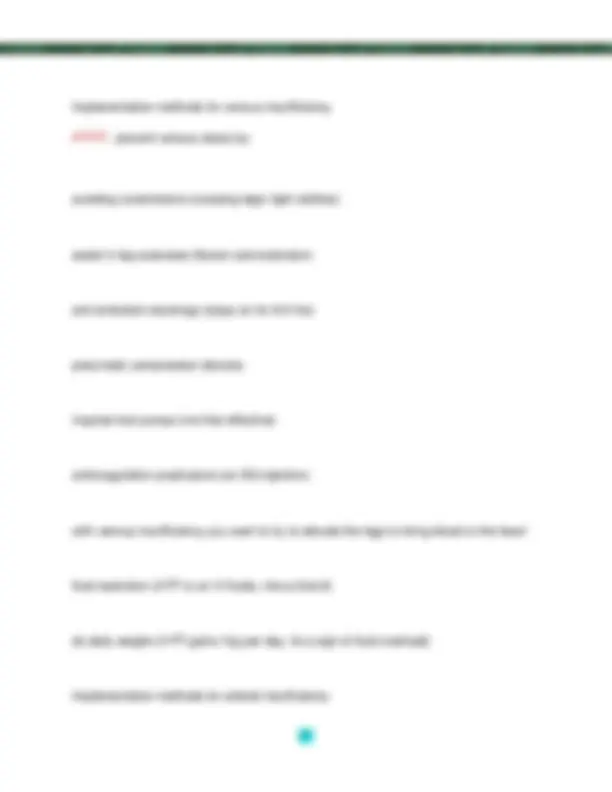
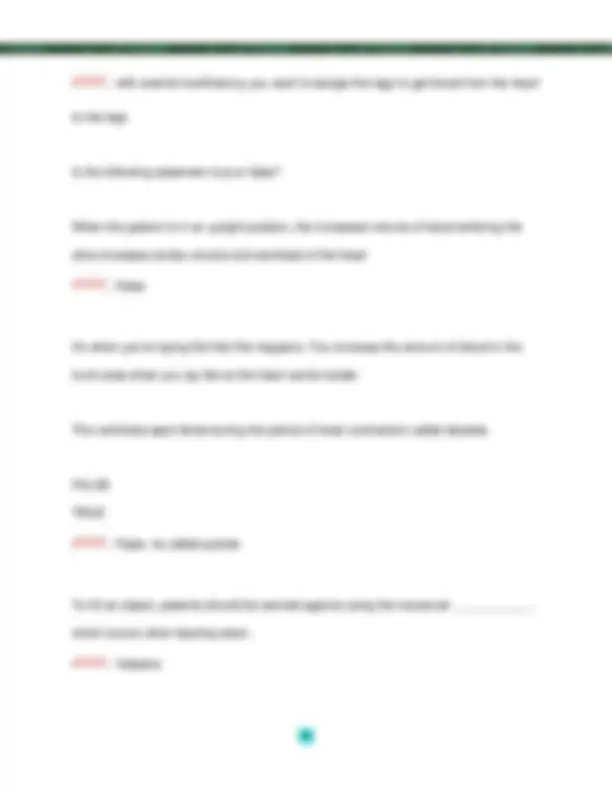
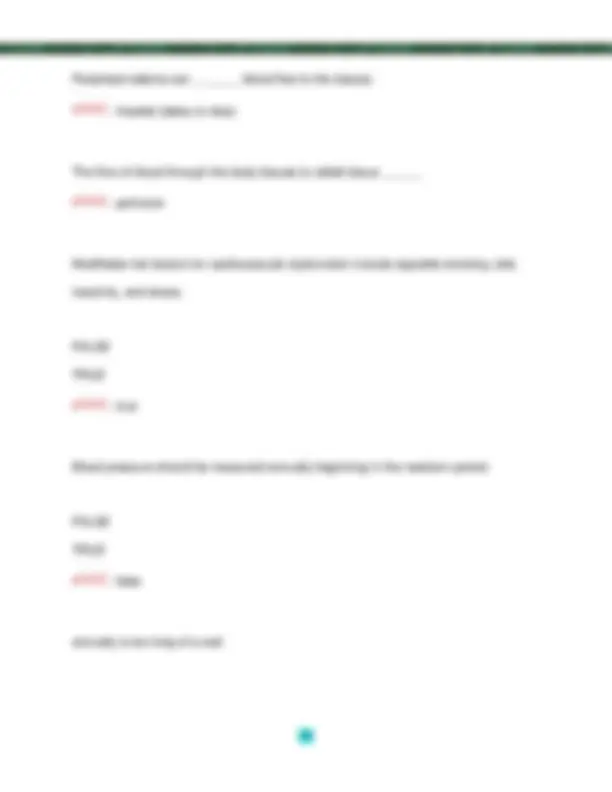
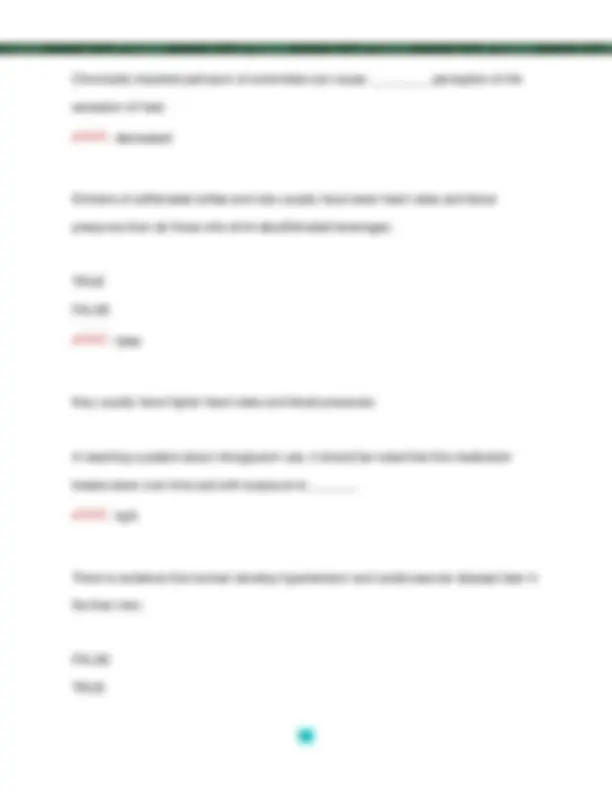
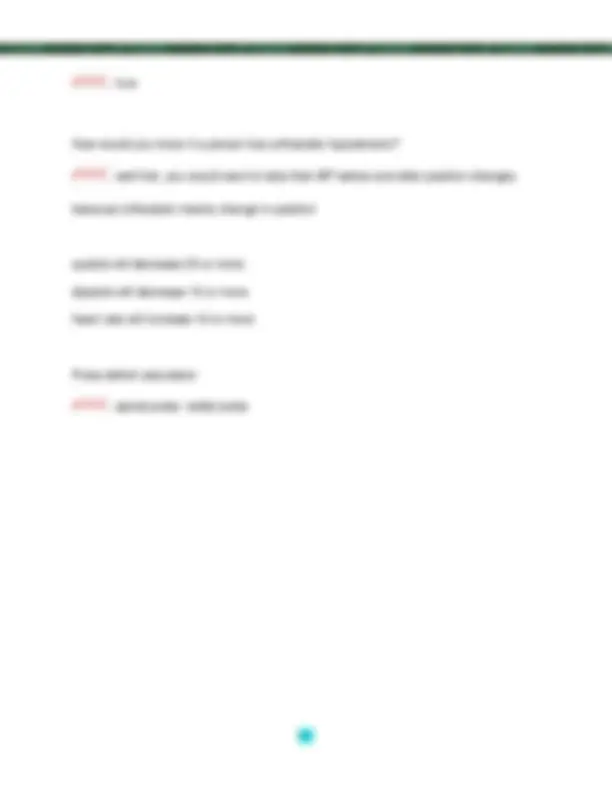


Study with the several resources on Docsity

Earn points by helping other students or get them with a premium plan


Prepare for your exams
Study with the several resources on Docsity

Earn points to download
Earn points by helping other students or get them with a premium plan
Community
Ask the community for help and clear up your study doubts
Discover the best universities in your country according to Docsity users
Free resources
Download our free guides on studying techniques, anxiety management strategies, and thesis advice from Docsity tutors
A series of multiple-choice questions and answers related to cardiovascular nursing. It covers various aspects of cardiovascular care, including assessment, interventions, medications, and client education. The questions are designed to test knowledge and understanding of key concepts in cardiovascular nursing.
Typology: Exams
1 / 41

This page cannot be seen from the preview
Don't miss anything!


































Prep U A nurse is assigned to care for a client with a terminal cardiovascular illness. When developing the client's plan of care, which outcome would the nurse identify as most realistic for this client? adaptation to living with limitations maintenance of adequate comfort acceptance of changes in lifestyle recovery from the cardiovascular problem
Rationale: The realistic outcome for a client with terminal cardiovascular disease is maintenance of adequate comfort and acceptance of impending death.Realistic outcomes for the client with chronic cardiovascular disease focus on helping the client to live within limitations imposed by the disease and to improve acceptance of changes in lifestyle and self-concept. Outcomes pertinent to the client who is admitted with an acute problem focus on recovery from the cardiovascular problem without residual complications. Prep U Upon entering a client's room, the client tells the nurse, "I'm having some really strong pain in my chest." The nurse intervenes immediately, placing the client in which position? Sitting Standing upright Flat with legs raised 20 to 30 degrees Supine
balloon pump (IABP), typically are used by trained critical care personnel to provide additional monitoring and support. Prep U A nurse is teaching a client with heart disease about exercising and signs of overexertion. The nurse determines that additional education is needed if the client states: "I should wait at least an hour after eating before exercising." "I need to call the doctor if it feels like my heart is racing." "I need to start my routine with my warm-up exercises." "I should stop exercising if my pulse is below my target zone."
Explanation:For the client, the goal of the exercise program is to achieve the target heart rate. The client should stop exercising if his pulse rate exceeds his target zone. Prep U
A nursing instructor is developing a class presentation about reasons people with cardiovascular problems seek medical care. Which of the following would the instructor include as the most common reason? Lower extremity swelling Persistent cough Chest pain Hypertension
Explanation:Although a person with cardiovascular dysfunction may have hypertension, lower extremity swelling, or cough, pain or discomfort in the chest is the most common reason people with cardiovascular dysfunction seek medical care. Prep U A nurse is preparing to administer a prescribed medication as prophylactic therapy for deep vein thrombosis. What would the nurse most likely give? Amiodarone
Prep U A 43-year-old woman was admitted to the hospital status post chest pain and cardiac ischemia. The nurse is reviewing her list of daily medications. What might actually increase the client's risk for cardiovascular problems? Select all that apply. Cold medication Diuretic Statin Oral contraceptives
vessels constrict and thus makes blood pressure and heart rate go up Diuretic Oral contraceptives Prep U
A nurse is assessing the heart rate of a newborn. Which finding would the nurse immediately report to the physician? 145 beats per minute 160 beats per minute 98 beats per minute 132 beats per minute
Explanation: normal infant heart rate is 130-160 BPM Prep U A nurse is providing care to a client with heart failure with a nursing diagnosis of Fluid Volume Excess. As part of the nursing plan of care, the nurse weighs the client every morning before breakfast. The client's weight yesterday was 75 kg. Which weight, if obtained today, would the nurse report to the health care provider? 74.0 kg 76.5 kg
"The powder helps to ensure that the stockings fit properly." "It helps to keep the legs warmer when wearing the stockings." "It helps to prevent any pressure areas from developing."
Prep U A client with angina is prescribed sublingual nitroglycerin. After teaching the client about this medication, the nurse determines that additional education is needed when the client states: "I should feel a tingling under my tongue when I use it." "I should carry the medicine with me at all times." "I can store the medicine on my counter in a clear glass container." "I need to check the expiration date so I refill the medicine on time."
Rationale: In clients with a history of pain, nitroglycerin should always be available so that it can be quickly administered if chest pain occurs. Prep U A client with cardiovascular dysfunction is prescribed a diuretic. Which nursing diagnosis would most likely apply? Decreased Cardiac Output Activity Intolerance Pain Fluid Volume Excess
Prep U The nurse is reviewing the medical record of a client who has returned to the clinic for a follow-up visit. On several previous visits, the client's blood pressure readings were as follows: 124/80 mm Hg; 132/86 mm Hg; 130/88 mm Hg. The client's blood pressure today is 128/82 mm Hg. Which statement by the nurse best reflects appropriate education for this client?
"It is also a good idea to visit a dietitian if you are starting an exercise program."
program." Prep U The nurse is assessing a client who comes to the urgent care clinic with the general report, "I just do not feel good." Which action should the nurse prioritize when noting the client's blood pressure is 198/130 mm Hg? Notify the health care provider immediately Document reading in the medical record Attach a blood pressure monitor to the client Recheck the blood pressure after 5 minutes
Prep U The nurse is assessing a 54-year-old client with a history of alcohol use disorder, who presents with a strong odor of alcohol on the breath, slurred speech, and poor coordination. Which finding on the assessment will the nurse anticipate?
Slightly elevated temperature Elevated blood pressure No bowel sounds Hyperactivity
Prep U The nurse is caring for several clients on the unit. Which client should the nurse prioritize interventions because of possible formation of thrombi? A 32-year-old client preparing for discharge after surgery for a fractured fibula An unconscious 29-year-old client who suffered a head injury in an accident A 58-year-old client who underwent an emergent appendectomy A 28-year-old client who is in traction for a fractured right femur
Clubbed fingers
Rationale: Dependent edema and engorged neck veins suggest heart failure or inefficient pumping ability of the heart. Pink skin would be considered a normal finding. Engorged neck veins imply inefficient right-sided heart pumping. Clubbed fingers are associated with oxygenation problems resulting from respiratory or cardiovascular disease. Prep U After reviewing information about the structure of the heart, nursing students demonstrate understanding of the information when they identify which of the following as the part that attaches the heart to the diaphragm and sternal wall? Septum Epicardium Myocardium Endocardium
Prep U
A client is scheduled for a cardiac catheterization. When explaining the purpose of this test to the client, which statement would be appropriate for the nurse to include in the education? "It helps identify any problems with electrical conduction in your heart." "The test is used to check how thick your heart muscle wall is." "The test can show any narrowing of the arteries in your heart." "It helps to see how your heart responds to stress."
Prep U A nurse is evaluating a client's blood pressure. On the past several visits to the clinic, the client's blood pressure readings were 134/86 mm Hg, 128/82 mm Hg and 130/ mm Hg. Today, the client's blood pressure is 136/88 mm Hg. The nurse would classify this as: high BP stage 2. high BP stage 1.
True or False: An electrocardiogram (ECG) uses 10 electrodes/leads to assess the heart's electrical activity from 12 different views.
Prep U A client is at risk for thrombus formation following surgery. Which action should the nurse take to assess for this risk? Auscultate the lungs Observe the legs for redness Measure the blood pressure Measure the pulse at the carotid artery
Explanation: Thrombi can form in any blood vessel, but they are most likely to form in the deep veins of the legs. The nurse should report any redness or reports of pain or swelling in the legs.
Prep U The nurse is assessing a client's edematous lower extremities and notes the absence of pitting. The area appears shiny, warm, and moist; it is hard on palpation. The nurse documents this finding as which type of edema? 4+ 3+ Brawny 2+
Explanation:Brawny edema is characterized by fluid being no longer displaced secondary to excessive interstitial fluid accumulation. Prep U A nurse is assessing the skin of a client with chronically impaired perfusion of the lower extremities. Which findings would the nurse most likely assess? Select all that apply. Skin ulceration